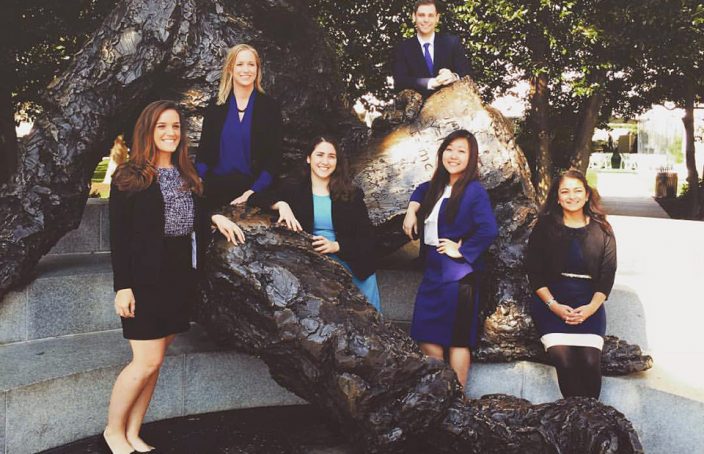UMB STUDENTS TAKE ON REGIONAL PUBLIC HEALTH CASE CHALLENGE
Written By: Priya Davey, Third-Year Student Pharmacist
On October 17, one future pharmacist, doctor, nurse, social worker, lawyer, and dentist from the University of Maryland, Baltimore (UMB) set out to solve what the National Academy of Medicine (NAM) has noted as one of “the greatest public health challenges” facing the Baltimore-Washington metropolitan area: the changing American city and its implications for the health and well-being of vulnerable populations. We had two weeks to brainstorm an idea, implement the plan, work out the kinks, and put it all together in a presentation to impress a panel of distinguished judges at the NAM’s D.C. Public Health Case Challenge. Competing against teams from six other universities across the region – all of which boasted brilliant students driven by their fearless dedication to public health – we wondered: could our professionally diverse team come together to create a groundbreaking solution to tackle this important public health concern?
As it turned out, we not only could, but we DID.
Putting in the Work
After 15 hours of in-person meetings and two weeks of constant research, our team designed COVR: Community Opportunities for Valuable Residents to help combat the obstacles that vulnerable urban populations often encounter when trying to obtain health care services, such as lack of insurance, access to reliable transportation, and problems navigating the complex health care system. We wanted to create a centralized “hub” that would provide residents with links to existing resources across the Washington, D.C. area to ensure that patients’ most basic health care needs were met, as well as to improve their overall health.
We framed our presentation around a hypothetical family living in a one-bedroom apartment that had recently been overwhelmed with rodents in southeast D.C. Our family had an asthmatic child who was in need of medical attention on a regular basis. However, rather than treat the child and send him back to the environment that was exacerbating his illness, we thought that our family needed assistance finding a home that was safe and would promote their overall health and wellness. Managed by student and community volunteers, COVR would link families like ours to:
- free legal services to motivate the property manager to eradicate the infestation
- additional medical services to treat the asthmatic child
- available social services to assist the family with obtaining financial support
Our plan also strived to address the issue of food deserts in urban areas, incentivizing families who followed through on appointments by providing a wellness pass that could be used to obtain free produce at new and existing farmers markets in the area. Through COVR, our goal was to advocate for vulnerable families and implement a plan to inspire policy change that would further mitigate these issues.
Learning Valuable Lessons
As the pieces came together, our team stopped identifying with our individual schools at UMB. Instead, we saw ourselves as a unified team with one purpose and one passion. Although each of us was initially called upon by our individual faculty advisors (my advisor was Cherokee Layson-Wolf, PharmD, BCACP, FAPhA, associate professor in the Department of Pharmacy Practice and Science (PPS) and associate dean for student affairs at the School of Pharmacy) to work together on a hypothetical case scenario, we found that the true value in our experience was in the potential that our future professions hold for the betterment of our communities.
While we did not place among the top three winners in the competition, we received a lot of positive feedback from our advisors and other competing students, many of whom noted that programs similar to ours were actually already flourishing as sustainable avenues to help those in need acquire appropriate health care services. I also believe the new knowledge that I gained from participating in this competition is my true prize, as I have come to think more broadly and critically about my contribution to health care and recognize that, after graduation, I won’t just be a pharmacist, but rather a public health advocate and a resource to my colleagues and other members of the health care team.


Excellent information, thanks to the author. It’s helpful to me now. The usefulness as well as significance is empowering. Thanks again and good luck!
physician search